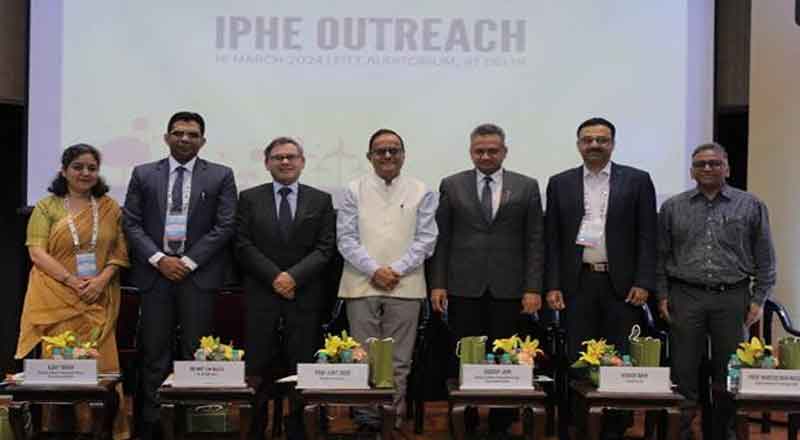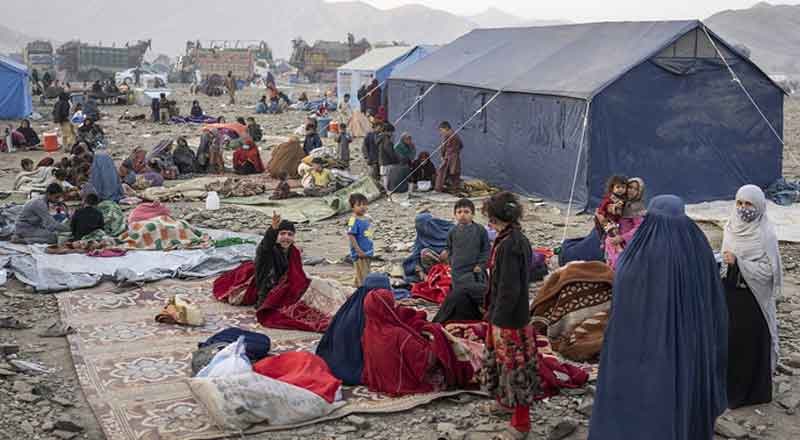UNICEF India has launched the Child Online Protection in India Report which provides a comprehensive overview of the current risks and threats faced by children when using the internet and social media.
Digital technologies offer significant developmental and educational benefits for children. It offers new spaces for learning, play, socialization and entertainment. However, the lack of digital literacy and online safety measures means that children are also exposed to risks of online crimes, abuse and exploitation. Cyber offences against children are spreading and diversifying across India as new methods are used to harass, abuse and exploit children.
Cyber-crimes against children have many forms including sex-texting, online grooming, production and distribution of child harmful material, cyber bullying, etc. However, to date cyber-crimes against children in India are under-reported and have been receiving very little attention and are not included in the National Crime Records Bureau statistics as a separate category.
“Globally, child online protection is much recognized and discussed agenda but sadly India is a little late to realize it. NASSCOM Foundation appreciates the efforts by UNICEF to bring the right people together to address this burning issue and we are glad to be a Technology for Good partner for this report which should act as a wake-up call,” said Shrikant Sinha, NASSCOM Foundation Head.
The study provides an extensive overview of the types of online risks and threats and outlines gaps in legislation and in service provision for child victims of online abuse. The report is a useful resource for child protection actors, law enforcement agencies, Information and Communication technology (ICT) companies, government ministries, media and anybody concerned about children’s online safety including parents and teachers. It is a resource that should help any organization working with children to enhance their awareness of the issue and understand both where to improve their own interventions and where to strengthen collaboration and coordination with other stakeholders.
The Report does not advocate for children not to go online or to do not use mobile phones but it demands for a responsible, informed and meaningful engagement of children and adolescents in protecting themselves and their peers from possible online abuse and exploitation.
The Report’s launch event provided a forum for multiple-stakeholders to discuss the complex nature of child online violence and the need for a multi-sectoral response. During the launch senior representatives from key government institutions, the ICT sector, national and international experts, media, academia and civil society discussed the way forward for child online safety, including prevention and response to online violence and abuse. Representatives from 10 States across India participated and estimated international experts contributed to the event including Patrick Burton, Director, Centre for Justice and Crime Prevention– Cape Town (South Africa) and Marie-Laure Lemineur, Head of Programmes for ECPAT International – Bangkok (Thailand).
Young people from Delhi, Mumbai and Chennai had also the opportunity to talk about what online safety means to them in an interactive session with radio DJs from New Delhi.
On the day, a high level panel discussion with representatives from govt. agencies, the private sector and civil society examined the key partnerships, tools and mechanisms needed to ensure effective collaborative practices between key actors to secure safe digital spaces for children in India.
Interactive sessions were also held on ‘preventing’ and ‘responding’ to child online exploitation and abuse in India. The response session focused on 1) Services for child victims of online abuse: medical, counselling, police, etc. 2) Capacity building needs of service providers including cyber-cells, health professionals, etc. and 3) Potentially high impact interventions to provide high quality services for child victims of online abuse and exploitation. The session on prevention highlighted the important role of the media, ICT, Digital India and education in raising awareness on child online protection.




